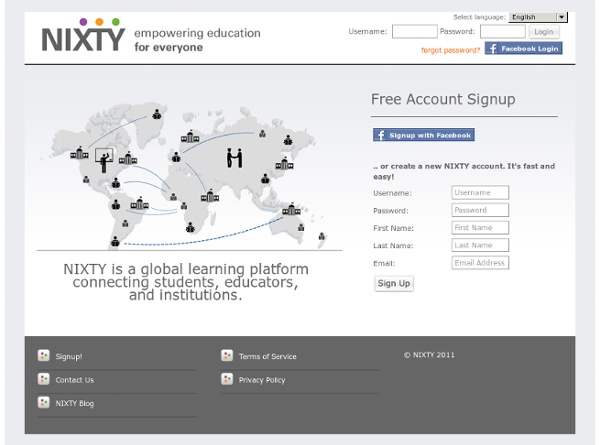



showcase portfolio tim rams - resume Personal details A complete version of my resume is available on request. Please navigate to the contact section for more information. Global timeline This timeline displays the key milestones of my resume with regard to education and work experience. Belbin team roles The Belbin Team Role Inventory is a test used to gain insight into an individual's personality type. Click here for a description of the different Belbin teamroles.
E-portfolios: Ten step guide to implementing in your school | The CORE Education Blog I recently attended Nick Rate’s CORE Breakfast, where he spoke on A Framework for Developing ePortfolios. Nick is an e-portfolio guru and regular speaker and presenter at conferences. He has a large number who follow his own blog, eLearning Infusion. He won an eFellowship award in 2008 where he devoted his time to working on Maximising the formative benefits of ePortfolios. I have written a report on Nick’s Breakfast presentation on the CORE web site, but thought that this list of ten points would be a really good Facilitator tips post here. The ten steps… 1. Read the literature, talk to the experts, look at a range of examples, and discuss widely with practitioners who use them. 2. Think about who the audience will be, what are the benefits, and how do these align with the broader vision and beliefs of the school? 3. Include students, teachers, school leadership, curriculum leaders and HODs, parents, the BOT, and related providers. 4. 5. 6. 7. 8. 9. 10.
THE APPLIED LEARNING PORTFOLIO | Webfolio | La Trobe University The Applied Learning Portfolio is a task that will help you reflect on your learning about teaching in informal and 'applied' contexts. The Victorian Institute of Teaching's Graduate Teacher Standards will be used as a device for making connections between experiences that you have had and the requirements for beginning teachers. Additionally, your experiences need to be organised according to the dimensions of the 'Applied Learning Star' and you will use this graphic to map your experiences in a visual dimension. This is website is a learning module that will support you to build your Applied Learning Portfolio. The learning module is actually built in Pebble Pad and hopefully this will help you to conceptualise what Pebble Pad is and how you might use it as a tool to develop your own resources.
Taking Flight | Webfolio | University of Wolverhampton Hi, this is me, after a tandem skydive I did for charity about 18 months ago. I jumped from 10,000 feet, free falling for the first 5,000 feet at about 100 miles per hour, I was securely attached to somebody wonderful, all I had to do was enjoy the view. I like this photograph as I look and felt like I had just conquered space. My name is Marie Gildea, forty something! As well as my part time study, I work full-time and most of my spare time is spent looking after my two children and taking them to their many hobbies. I hated school, I hated the routine, the homework and usually the teachers. My enjoyment and achievements in life came through things like throwing myself out of an aeroplane, para-sailing whilst on holiday, or long distance running - completing several half marathons including the Great North Run in 2004.